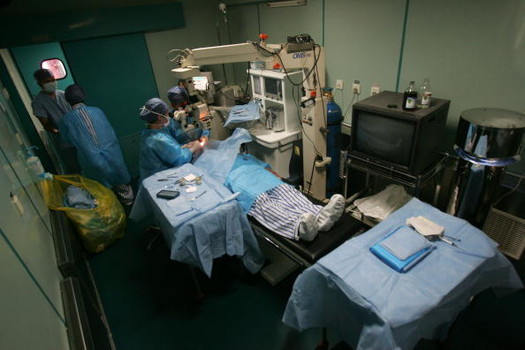A trial procedure that has helped people from completely losing their sight might be able to help fight back against different causes of blindness.
According to the BBC, the operation uses gene therapy, which involves a doctor inserting a gene into the back of the eye—in this case, to prevent retina cells from continuing to die. The procedure is now enjoying greater success than previously imagined possible. Professor Robert MacLaren, who lead research on the procedure, said, “We really couldn’t have asked for a better result.”
The BBC reports that patients have gone into the procedure thinking that it would simply stop the blindness for getting worse, but it has actually improved their vision. The first ever patient to receive this treatment was 63 at the time said that he’s now able to read three lines lower on the optician’s chart that he could before the therapy.
Another patient noted that his color vision was remarkably improved and other patients, who were at earlier stages of vision, noted that their night vision improved. So far, only patients with choroideremia have received the treatment. With this particular condition, the light-detecting cells at the back of the eye start to die off. When a gene is injected near those cells, they no longer die.
However, Professor MacLaren believes that this success shows that gene therapy could be effective against other types of blindness, such as glaucoma and macular degeneration. As both types of these blindnesses have a genetic basis, they should be able to be prevented by gene therapy.
This is not a cure for blindness. Though patients have noted improved vision, none of them have reported completely restored vision and MacLaren says that once a certain amount of damage is done, it cannot be repaired. However, choroideremia previously had no treatment and now no longer needs to be associated with inevitable blindness.
Should further research lead to helping those with glaucoma and other blindness-causing conditions, this procedure would have the ability to significantly change lives. And as our aging population grows ever larger, this procedure could be incredibly helpful in allowing many to maintain their self-sufficiency.








